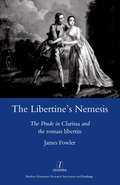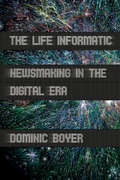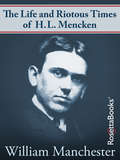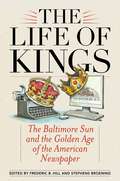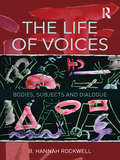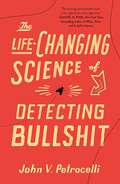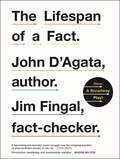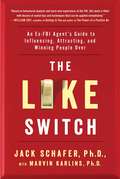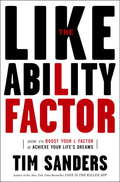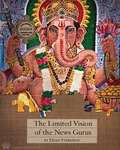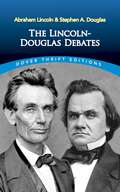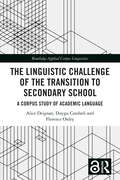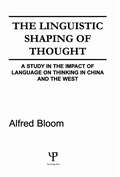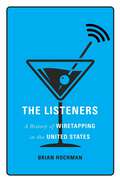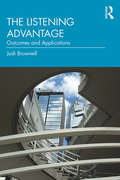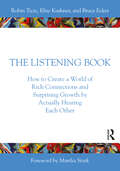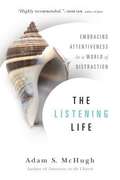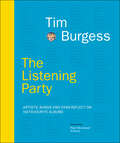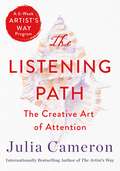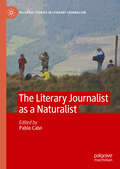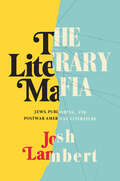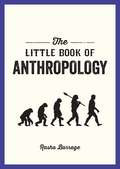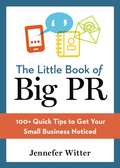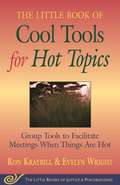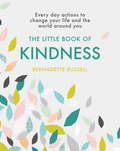- Table View
- List View
The Libertine's Nemesis: The Prude in Clarissa and the Roman Libertin
by James FowlerWhat is the role of the prude in the roman libertin? James Fowler argues that in the most famous novels of the genre (by Richardson, Crebillon fils, Laclos and Sade) the prude is not the libertine's victim but an equal and opposite force working against him, and that ultimately she brings retribution for his social, erotic and philosophical presumption. In a word, she is his Nemesis. He is vulnerable to her power because of the ambivalence he feels towards her; she is his ideological enemy, but also his ideal object. Moreover, the libertine succumbs to an involuntary nostalgia for the values of the Seventeenth Century, which the prude continues to embody through the age of Enlightenment. In Crebillon fils and Richardson, the encounter between libertine and prude is played out as a skirmish or duel between two individuals. In Laclos and Sade, the presence of female libertines (the Marquise de Merteuil and Juliette) allows that encounter to be reenacted within a murderous triangle.
The Life Informatic
by Dominic BoyerNews journalism is in the midst of radical transformation brought about by the spread of digital information and communication technology and the rise of neoliberalism. What does it look like, however, from the inside of a news organization? In The Life Informatic, Dominic Boyer offers the first anthropological ethnography of contemporary office-based news journalism. The result is a fascinating account of journalists struggling to maintain their expertise and authority, even as they find their principles and skills profoundly challenged by ever more complex and fast-moving streams of information. Boyer conducted his fieldwork inside three news organizations in Germany (a world leader in digital journalism) supplemented by extensive interviews in the United States. His findings challenge popular and scholarly images of journalists as roving truth-seekers, showing instead the extent to which sedentary office-based "screenwork" (such as gathering and processing information online) has come to dominate news journalism. To explain this phenomenon Boyer puts forth the notion of "digital liberalism"-a powerful convergence of technological and ideological forces over the past two decades that has rebalanced electronic mediation from the radial (or broadcast) tendencies of the mid-twentieth century to the lateral (or peer-to-peer) tendencies that dominate in the era of the Internet and social media. Under digital liberalism an entire regime of media, knowledge, and authority has become integrated around liberal principles of individuality and publicity, both unmaking and remaking news institutions of the broadcast era. Finally, Boyer offers some scenarios for how news journalism will develop in the future and discusses how other intellectual professionals, such as ethnographers, have also become more screenworkers than fieldworkers.
The Life and Riotous Times of H.L. Mencken
by William Manchester&“Written with verve, intellectual sophistication, and a prickly wit worthy of its eminent subject. . . . A first-class piece of literate entertainment&” (The New Yorker). Before he went on to become a celebrated biographer and historian, renowned for such works as A World Lit Only by Fire, American Caesar, and The Last Lion, William Manchester worked as a reporter for the Baltimore Sun in the 1940s—and it was there that he met fellow journalist H. L. Mencken. This book tells the story of conservative, anarchist H. L. Mencken&’s life in compelling, intimate detail—and offers a uniquely personal look at the influential cultural critic and satirist who cofounded the magazines the American Mercury and the Smart Set and became a legend for his sharp and highly quotable wit.
The Life of Kings: The Baltimore Sun and the Golden Age of the American Newspaper
by Frederic B. Hill Stephens BroeningIn an age when local daily papers with formerly robust reporting are cutting sections and even closing their doors, the contributors to The Life of Kings celebrate the heyday of one such paper, the Baltimore Sun, when it set the agenda for Baltimore, was a force in Washington, and extended its reach around the globe. Contributors like David Simon, creator of HBO’s The Wire, and renowned political cartoonist Kevin Kallaugher (better known as KAL), tell what it was like to work in what may have been the last golden age of American newspapers -- when journalism still seemed like “the life of kings” that H.L. Mencken so cheerfully remembered. The writers in this volume recall the standards that made the Sun and other fine independent newspapers a bulwark of civic life for so long. Their contributions affirm that the core principles they followed are no less imperative for the new forms of journalism: a strong sense of the public interest in whose name they were acting, a reverence for accuracy, and an obligation
The Life of Voices: Bodies, Subjects and Dialogue
by B. Hannah RockwellThe Life of Voices illustrates how human voices have special significance as the place where mind and body collaborate to produce everyday speech. Hannah Rockwell links Russian semiotician Mikhail Bakhtin’s philosophy of dialogue with French phenomenologist Maurice Merleau-Ponty’s views of the relation between bodies and speech expression to develop a unique theory of communication and bodies. By introducing readers to actual human subjects speaking about how their identities have been shaped and transformed through time, the author explores how discourses reproduce ideology and social power relations. Readers are challenged to consider complex influences between human subjects and institutionalized discourses through critical-interpretive analyses of transcribed speech. The Life of Voices has an interdisciplinary flair grounded in careful research. Scholars in communication, sociology, philosophy, psychology, linguistics, anthropology, gender studies and identity politics will find valuable insights, methods and examples in this work. It is essential reading for anyone who is interested in discourse studies and the body’s relationship to speech or human identity formation.
The Life-Changing Science of Detecting Bullshit
by John V. PetrocelliExpanding upon his viral TEDx Talk, psychology professor and social scientist John V. Petrocelli reveals the critical thinking habits you can develop to recognize and combat pervasive false information that harms society in The Life-Changing Science of Detecting Bullshit.Bullshit is the foundation of contaminated thinking and bad decisions leading to health consequences, financial losses, legal consequences, broken relationships, and wasted time and resources.No matter how smart we believe ourselves to be, we’re all susceptible to bullshit—and we all engage in it. While we may brush it off as harmless marketing sales speak or as humorous, embellished claims, it’s actually much more dangerous and insidious. It’s how Bernie Madoff successfully swindled billions of dollars from even the most experienced financial experts with his Ponzi scheme. It’s how the protocols of Mao Zedong’s Great Leap Forward resulted in the deaths of 36 million people from starvation. Presented as truths by authority figures and credentialed experts, bullshit appears legitimate, and we accept their words as gospel. If we don’t question the information we receive from bullshit artists to prove their thoughts and theories, we allow these falsehoods to take root in our memories and beliefs. This faulty data affects our decision making capabilities, sometimes resulting in regrettable life choices. But with a little dose of skepticism and a commitment to truth seeking, you can build your critical thinking and scientific reasoning skills to evaluate information, separate fact from fiction, and see through bullshitter spin. In The Life-Changing Science of Detecting Bullshit, experimental social psychologist John V. Petrocelli provides invaluable strategies not only to recognize and protect yourself from everyday bullshit, but to accept your own lack of knowledge about subjects and avoid in engaging in bullshit just for societal conformity.With real world examples from people versed in bullshit who work in the used car, real estate, wine, and diamond industries, Petrocelli exposes the red-flag warning signs found in the anecdotal stories, emotional language, and buzzwords used by bullshitters that persuade our decisions. By using his critical thinking defensive tactics against those motivated by profit, we will also learn how to stop the toxic misinformation spread from the social media influencers, fake news, and op-eds that permeate our culture and call out bullshit whenever we see it.
The Lifespan of a Fact: Now a Broadway Play
by John D'Agata Jim FingalNOW A BROADWAY PLAY STARRING DANIEL RADCLIFFE'Provocative, maddening and compulsively readable' Maggie NelsonIn 2003, American essayist John D'Agata wrote a piece for Harper's about Las Vegas's alarmingly high suicide rate, after a sixteen-year-old boy had thrown himself from the top of the Stratosphere Tower.The article he delivered, 'What Happens There', was rejected by the magazine for inaccuracies. But it was soon picked up by another, who assigned it a fact checker: their fresh-faced intern, and recent Harvard graduate, Jim Fingal. What resulted from that assignment, and beyond the essay's eventual publication in the magazine, was seven years of arguments, negotiations, and revisions as D'Agata and Fingal struggled to navigate the boundaries of literary nonfiction.This book includes an early draft of D'Agata's essay, along with D'Agata and Fingal's extensive discussion around the text. The Lifespan of a Fact is a brilliant and eye-opening meditation on the relationship between 'truth' and 'accuracy', and a penetrating conversation about whether it is appropriate for a writer to substitute one for the other.'A fascinating and dramatic power struggle over the intriguing question of what nonfiction should, or can, be' Lydia Davis
The Like Switch: An Ex-FBI Agent's Guide to Influencing, Attracting, and Winning People Over (The Like Switch Series #1)
by Marvin Karlins Jack SchaferFrom a former FBI Special Agent specializing in behavior analysis and recruiting spies comes a handbook filled with his proven strategies on how to instantly read people and influence how they perceive you, so you can easily turn on the like switch.The Like Switch is packed with all the tools you need for turning strangers into friends, whether you are on a sales call, a first date, or a job interview. As a Special Agent for the FBI’s National Security Division’s Behavioral Analysis Program, Dr. Jack Schafer developed dynamic and breakthrough strategies for profiling terrorists and detecting deception. Now, Dr. Schafer has evolved his proven-on-the-battlefield tactics for the day-to-day, but no less critical battle of getting people to like you. In The Like Switch, he presents these techniques for how you can influence, attract, and win people over. Learn how to think and react like your favorite TV investigators from Criminal Minds or CSI as Dr. Schafer shows you how to improve your LQ (Likeability Quotient), “spot the lie” both in person and online, master nonverbal cues that influence how people perceive you, and turn up or turn down the intensity of a relationship. Dr. Schafer cracks the code on making great first impressions, building lasting relationships, and understanding others’ behavior to learn what they really think about you. With tips and techniques that hold the key to taking control of your communications, interactions, and relationships, The Like Switch shows you how to read others and get people to like you for a moment or a lifetime.
The Likeability Factor: "How to Boost Your L-Factor and Achieve Your Life's Dreams
by Tim SandersAre you wondering how you can improve your relationships with your friends and family? Are you curious how to get or keep the job of your dreams? Do you want to become a more popular person? This book will show you how to do all that by raising your likeability factor—or how much other people like you.After all, life is a series of popularity contests. The choices other people make about you determine your health, wealth, and happiness. And decades of research prove that people choose who they like. They vote for them, they buy from them, they marry them, and they spend precious time with them.The good news is that you can arm yourself for the contest and win life’s battles for preference. How? By being likeable. The more you are liked—or the higher your likeability factor—the happier your life will be. This book will show you how to raise that likeability factor by teaching you how to boost four critical elements of your personality: •Friendliness: your ability to communicate liking and openness to others •Relevance: your capacity to connect with others’ interests, wants, and needs •Empathy: your ability to recognize, acknowledge, and experience other people’s feelings •Realness: the integrity that stands behind your likeability and guarantees its authenticity What happens when you improve in these areas and boost your likeability factor? •You bring out the best in others •You survive life’s challenges •You have better health—and even improve others’ health, too •You outperform in your daily roles •You win the popularity contests that define your life Join me for a few hours and I’ll share the results of hundreds of thousands of pages of research, numerous seminars, and hundreds of interviews with people just like you! Together let’s build our likeability factor and improve our lives! Also available as a Random House AudioBook
The Limited Vision of the News Gurus
by Dean StarkmanDean Starkman takes on what has become a dominant perspective on the future of news in the digital age as personified by three well known media thinkers — Jay Rosen, Clay Shirky, and Jeff Jarvis — who have dominated the "future of news" debate. Starkman makes a powerful case that the perspective that these three represent, despite their many useful insights, is in the end corrosive to public-service journalism.
The Lincoln-Douglas Debates (Dover Thrift Editions)
by Abraham Lincoln Stephen A. Douglas Edwin Erle SparksOne of the most significant and far-reaching events in U. S. history, the Lincoln-Douglas debates of 1858 sharpened and brought to a head a number of crucial questions concerning slavery, states' rights, the legal status of blacks, and the effects of the Dred Scott decision. The debates were held as part of the campaign for the Illinois senatorial seat, pitting the two-term incumbent, Democrat Stephen A. Douglas, against the lesser-known Abraham Lincoln, a successful lawyer and former state politician who was the Republican candidate.Paving the way for modern discussions between political candidates, the Lincoln-Douglas debates fascinated nineteenth-century America and catapulted Lincoln into the spotlight. Although he lost the race to Douglas, the stature and recognition Lincoln gained during the exchanges helped propel him to the presidency in 1860, just two years later. This volume features rousing speeches by each candidate and the rejoinders and replies.
The Linguistic Challenge of the Transition to Secondary School: A Corpus Study of Academic Language (Routledge Applied Corpus Linguistics)
by Alice Deignan Duygu Candarli Florence OxleyThis book provides a unique analysis and description of the linguistic challenges faced by school students as they move from primary to secondary school, a major transition, which some students struggle with emotionally and academically. The study: • draws on a bespoke corpus of 2.5 million words of written materials and transcribed classroom recordings, provided by the project's partner schools; • combines quantitative and qualitative approaches to the corpus data to explore linguistic variation across school levels, registers and subjects; • describes the procedures of corpus compilation and analysis of written and spoken academic language, showing how modern corpus tools can be applied to this far-reaching social and educational issue; • uncovers differences and similarities between the academic language that school children are exposed to at primary and secondary school, contrasting this against the backdrop of the non-academic language that they encounter outside school. This book is important reading for advanced students and researchers in corpus linguistics, applied linguistics and teacher education. It carries implications for policymakers and schools looking to support students at this critical point in their schooling.
The Linguistic Shaping of Thought: A Study in the Impact of Language on Thinking in China and the West
by A. H. Bloom Alfred H. BloomFirst published in 1981. Routledge is an imprint of Taylor & Francis, an informa company.
The Listeners: A History of Wiretapping in the United States
by Brian HochmanThey’ve been listening for longer than you think. A new history reveals how—and why. Wiretapping is nearly as old as electronic communications. Telegraph operators intercepted enemy messages during the Civil War. Law enforcement agencies were listening to private telephone calls as early as 1895. Communications firms have assisted government eavesdropping programs since the early twentieth century—and they have spied on their own customers too. Such breaches of privacy once provoked outrage, but today most Americans have resigned themselves to constant electronic monitoring. How did we get from there to here? In The Listeners, Brian Hochman shows how the wiretap evolved from a specialized intelligence-gathering tool to a mundane fact of life. He explores the origins of wiretapping in military campaigns and criminal confidence games and tracks the use of telephone taps in the US government’s wars on alcohol, communism, terrorism, and crime. While high-profile eavesdropping scandals fueled public debates about national security, crime control, and the rights and liberties of individuals, wiretapping became a routine surveillance tactic for private businesses and police agencies alike. From wayward lovers to foreign spies, from private detectives to public officials, and from the silver screen to the Supreme Court, The Listeners traces the long and surprising history of wiretapping and electronic eavesdropping in the United States. Along the way, Brian Hochman considers how earlier generations of Americans confronted threats to privacy that now seem more urgent than ever.
The Listening Advantage: Outcomes and Applications
by Judi BrownellThis outcome-based text offers principles and skill-building experiences for the critical competence of listening. It serves as an adaptable supplement for courses in communication and professional studies. It draws from the author’s HURIER model, which identifies six interrelated components of listening—hearing, understanding, remembering, interpreting, evaluating, and responding—and considers the skills required to achieve the specific outcomes related to each. Varied classroom activities, including discussion questions, group processes, and other instructional strategies, facilitate skill-building and the achievement of each Listening Outcome. The final section of the text identifies those outcomes that are particularly relevant to specific career applications and provides cases to facilitate discussion and illustrate listening challenges in each field. The outcome-based, modular format allows instructors maximum flexibility in adapting instructional materials to meet the needs of specific courses and time frames. The Listening Advantage is an invaluable supplement for courses in communication studies and professional fields including education, healthcare, helping professions, law, management, and service.
The Listening Book: How to Create a World of Rich Connections and Surprising Growth by Actually Hearing Each Other
by Bruce Ecker Robin Ticic Elise KushnerSatisfying, secure connection with others depends heavily on how well we listen to each other and respond to what we’ve heard. The Listening Book lays bare the key elements of both deeply attuned and badly misattuned listening in vivid scenes of real-life interactions that capture the emotional impact and give the reader an illuminating "aha" experience. Added to that is a mind-opening account of psychological processes and principles that normally operate from outside of awareness, showing how skillful listening can reveal those dynamics. Beyond even that, such listening can produce interactions that unlock lifelong emotional conditioning to yield liberating change through one of the brain’s most remarkable processes, which neuroscientists call memory reconsolidation. Whether read solo, with a partner, or in a reading group, The Listening Book is for everyone who yearns for deeper emotional connection and closeness, everyone who is at a loss to understand what is interfering, and everyone who is fascinated by the subtle and manifold factors involved in interpersonal communication.
The Listening Life: Embracing Attentiveness In A World Of Distraction
by Adam S. MchughLogos Association Bookstore Award, Best Christian Living Book for 2016Bookwi. se's Favorite Books of the Year, Non-Fiction"Be quick to listen, slow to speak. " --James 1:19How would our lives change if we approached every experience with the intention of listening first?In this noisy, distracting world, it is difficult to truly hear. People talk past each other, eager to be heard but somehow deaf to what is being said. Listening is an essential skill for healthy relationships, both with God and with other people. But it is more than that: listening is a way of life. Adam McHugh places listening at the heart of our spirituality, our relationships and our mission in the world. God himself is the God who hears, and we too can learn to hear what God may be saying through creation, through Scripture, through people. By cultivating a posture of listening, we become more attentive and engaged with those around us. Listening shapes us and equips us to be more attuned to people in pain and more able to minister to those in distress. Our lives are qualitatively different--indeed, better--when we become listeners. Heed the call to the listening life, and hear what God is doing in you and the world.
The Listening Party: Artists, Bands and Fans Reflect on 100 Favorite Albums
by Tim BurgessThe Charlatans&’ Tim Burgess invites you to the greatest listening party of all time. In 2020 when the world was forced to hit pause on live in-person gigs, Tim Burgess found an ingenious way to bring people together by inviting artists and bands, from Paul McCartney and New Order to Michael Kiwanuka and Kylie, to host real-time album playbacks via Twitter. Relive 100 of the most memorable listening parties here with stories from bands and fans, rarely seen backstage images, and unique insider info from those who created these iconic albums. "Hey Twitter, let's all say a big thanks to Tim for these brilliant events this year! We really needed them. So much great music being talked about.'" - Sir Paul McCartney "Twitter being used for something really positive." - Mary Beard
The Listening Path: The Creative Art of Attention (A 6-Week Artist's Way Program)
by Julia CameronA 6-week Artist’s Way Program from legendary author Julia Cameron A Washington Post and Publisher's Weekly Bestseller"Cameron's fans will love this"—Publishers Weekly The newest book from beloved author Julia Cameron, The Listening Path is a transformational journey to deeper, more profound listening and creativity. Over six weeks, readers will be given the tools to become better listeners—to their environment, the people around them, and themselves. The reward for learning to truly listen is immense. As we learn to listen, our attention is heightened and we gain healing, insight, clarity. But above all, listening creates connections and ignites a creativity that will resonate through every aspect of our lives.Julia Cameron is the author of the explosively successful book The Artist’s Way, which has transformed the creative lives of millions of readers since it was first published. Incorporating tools from The Artist’s Way, The Listening Path offers a new method of creative and personal transformation.Each week, readers will be challenged to expand their ability to listen in a new way, beginning by listening to their environment and culminating in learning to listen to silence. These weekly practices open up a new world of connection and fulfillment. In a culture of bustle and constant sound, The Listening Path is a deeply necessary reminder of the power of truly hearing.
The Literary Journalist as a Naturalist (Palgrave Studies in Literary Journalism)
by Pablo CalviThis book is a scholarly anthology that proposes a deep discussion about the multiple ways in which narrative journalism has portrayed nature, human interactions with nature, the global actions and the consequences of activities that have either attempted to explore it, exploit it, harness it, dominate it, and protect it. This essay collection offers an academic framework for literary journalistic narratives about nature and includes the study of long form journalism originated in different corners of the world, all exploring human-non human-nature interactions in all their power, finitude, peril and urgency.
The Literary Mafia: Jews, Publishing, and Postwar American Literature
by Josh LambertAn investigation into the transformation of publishing in the United States from a field in which Jews were systematically excluded to one in which they became ubiquitous &“Readers with an interest in the industry will find plenty of insights.&”—Publishers Weekly &“From the very first page, this book is funnier and more gripping than a book on publishing has any right to be. Anyone interested in America&’s intellectual or Jewish history must read this, and anyone looking for an engrossing story should.&”—Emily Tamkin, author of Bad Jews In the 1960s and 1970s, complaints about a &“Jewish literary mafia&” were everywhere. Although a conspiracy of Jews colluding to control publishing in the United States never actually existed, such accusations reflected a genuine transformation from an industry notorious for excluding Jews to one in which they arguably had become the most influential figures. Josh Lambert examines the dynamics between Jewish editors and Jewish writers; how Jewish women exposed the misogyny they faced from publishers; and how children of literary parents have struggled with and benefited from their inheritances. Drawing on interviews and tens of thousands of pages of letters and manuscripts, The Literary Mafia offers striking new discoveries about celebrated figures such as Lionel Trilling and Gordon Lish, and neglected fiction by writers including Ivan Gold, Ann Birstein, and Trudy Gertler. In the end, we learn how the success of one minority group has lessons for all who would like to see American literature become more equitable.
The Little Book of Anthropology: A Pocket Guide to the Study of What Makes Us Human
by Rasha BarrageIf you’re intrigued by the question “What makes us human?”, strap in for this whirlwind tour of the highlights of anthropologyFrom the first steps of our prehistoric ancestors, to the development of complex languages, to the intricacies of religions and cultures across the world, diverse factors have shaped the human species as we know it. Anthropology strives to untangle this fascinating web of history to work out who we were in the past, what that means for human beings today and who we might be tomorrow.This pocket-sized introduction includes accessible primers on:Influential anthropologists such as Franz Boas, Margaret Mead and Ruth BenedictThe key branches of anthropology, from physical and linguistic anthropology to archaeologyHow anthropologists study topics such as communication, identity, sex and gender, religion and cultureHow we can approach one of life’s most enduring questions: what is it that truly makes us human?This illuminating little book will introduce you to the key thinkers, themes and theories you need to know to understand the development of human beings, and how our history has informed the way we live today. A perfect gift for anyone taking their first steps into the world of anthropology, as well as for those who want to brush up their knowledge.
The Little Book of Big PR: 100+ Quick Tips to Get Your Small Business Noticed
by Jennefer WitterAny size business can benefit from public relations. You can gain attention for your own small business and help build your company's credibility and brand . . . if you know the tricks of the trade. The Little Book of Big PR gives you essential advice on how to use public relations effectively as a business-building tool, whether you're an established company or a cost-conscious start-up. Drawing on the expertise gained during her long career in public relations, Jennefer Witter shares simple, smart, and budget-friendly methods for getting your business noticed. The book concisely covers the seven key elements of public relations, including: Self-Branding: Communicate who you are, what you do, and how you differ from others, highlighting your own uniqueness to give you a distinct advantage over your competition. Media Relations: Working with the press involves targeting the right outlets, in exactly the right way. This book tells you how to craft a perfect pitch, when to follow up, and what not to do when dealing with reporters. Social Media: Find out which social media are most effective for small business owners; what to post and where; and how to integrate social media into your strategy to widen your audience, and ultimately, the opportunity to generate additional revenue. And more . . . The book features quick tips on key topics including networking, speaking engagments, and how to select a PR agency---should you choose to work with one. The book also includes real-world case studies and sample content (such as media pitches) to use as-is or to modify to fit your own specific needs. As an entrepreneur, you need every helpful tool you can get your hands on! Now you're armed with the very same tactics the PR pros use, giving you the expert guidance you need to help grow your business to new, attention-getting heights.
The Little Book of Cool Tools for Hot Topics: Group Tools to Facilitate Meetings When Things Are Hot
by Evelyn Wright Ron KraybillLead author Ron Kraybill is a professor of Conflict Studies in the Conflict Transformation Program at Eastern Mennonite University, Harrisonburg, Virginia. During the years of the South African political transition, he trained local, regional, and national leadership in negotiation and mediation skills and served as a training advisor to the National Peace Accord. Cool Tools is rich in anecdotes and practical how-to for any group faced with tension-filled decision-making.
The Little Book of Kindness: Everyday actions to change your life and the world around you
by Bernadette RussellThe Little Book of Kindness will teach you how to be kind to yourself, to strangers, to those you love, to the world - every day, at every opportunity. Prompted by the seeming hopelessness of the world around her, Bernadette Russell undertook a pledge to be kind to a stranger every day for a year. The experience left her wanting to inspire others. The Little Book of Kindness is packed with fun ideas, practical tips and interactive exercises that encourage you to 'be kind' in every area of life - online, to strangers, to the environment, in your community, to yourself - and change the world, one act of kindness at a time.
